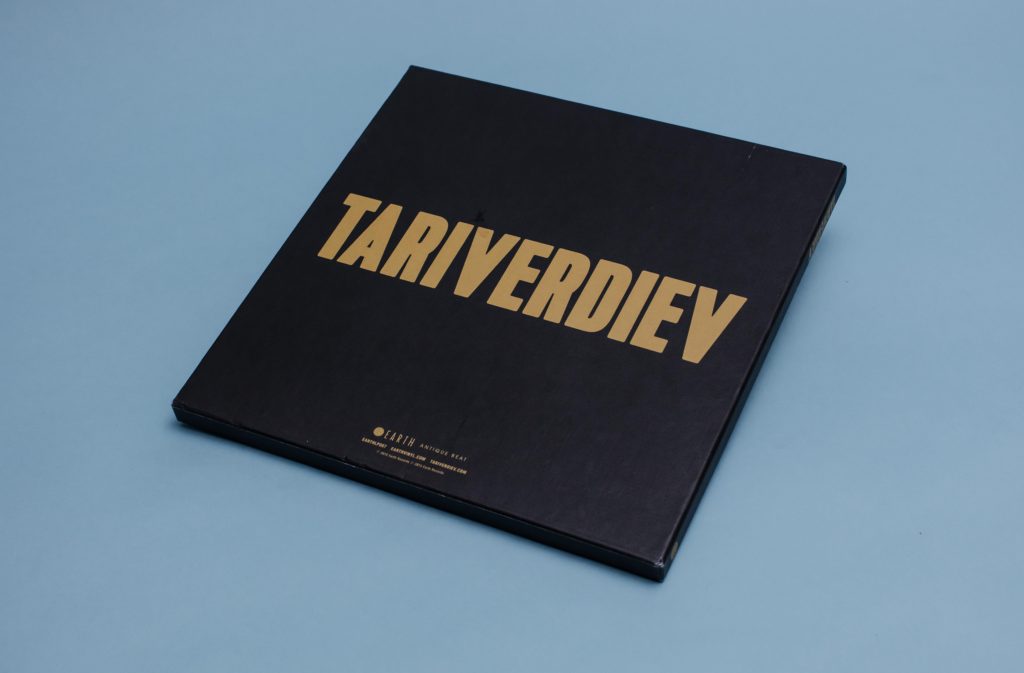
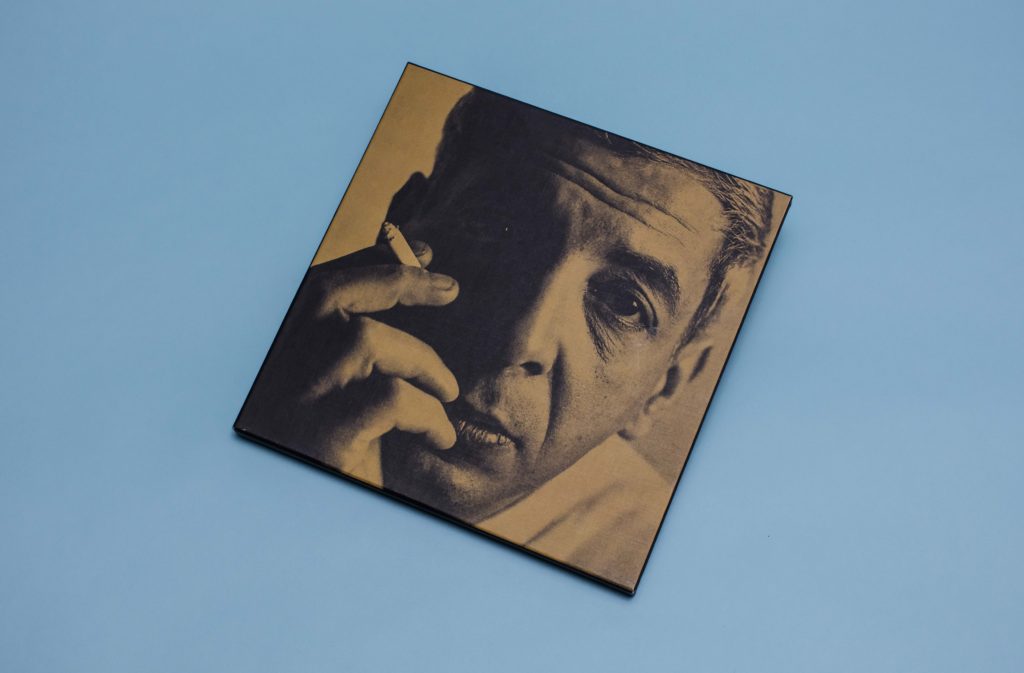
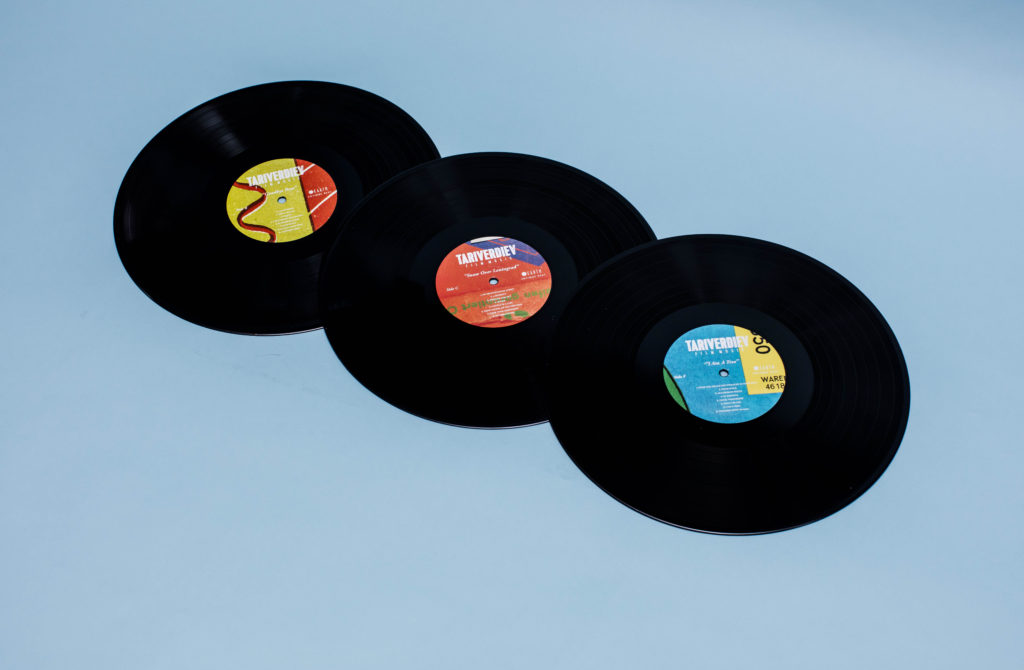
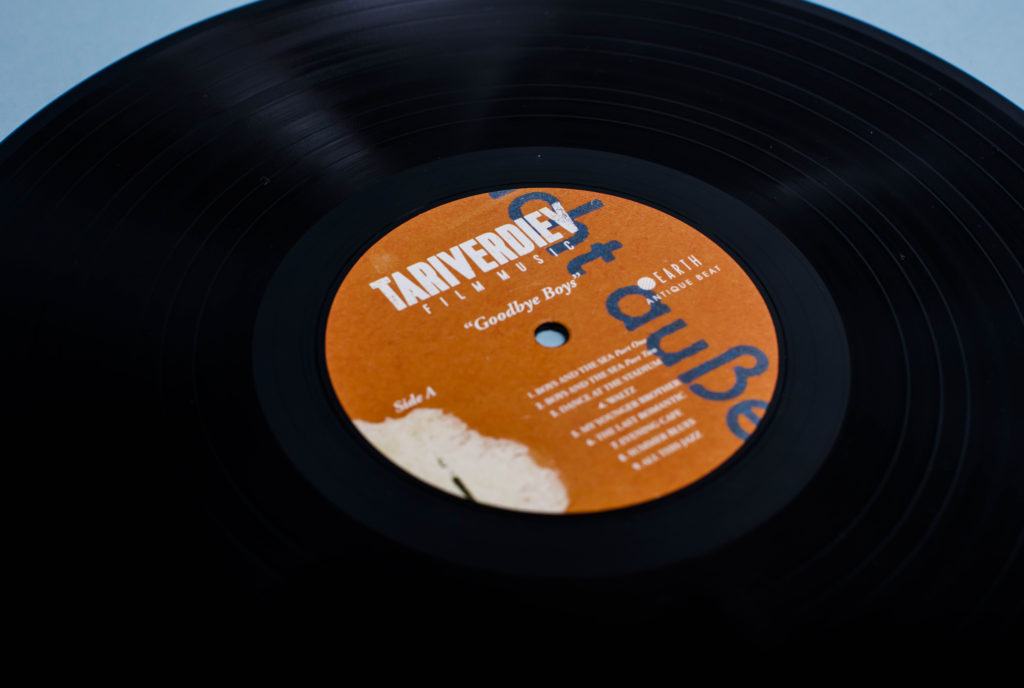

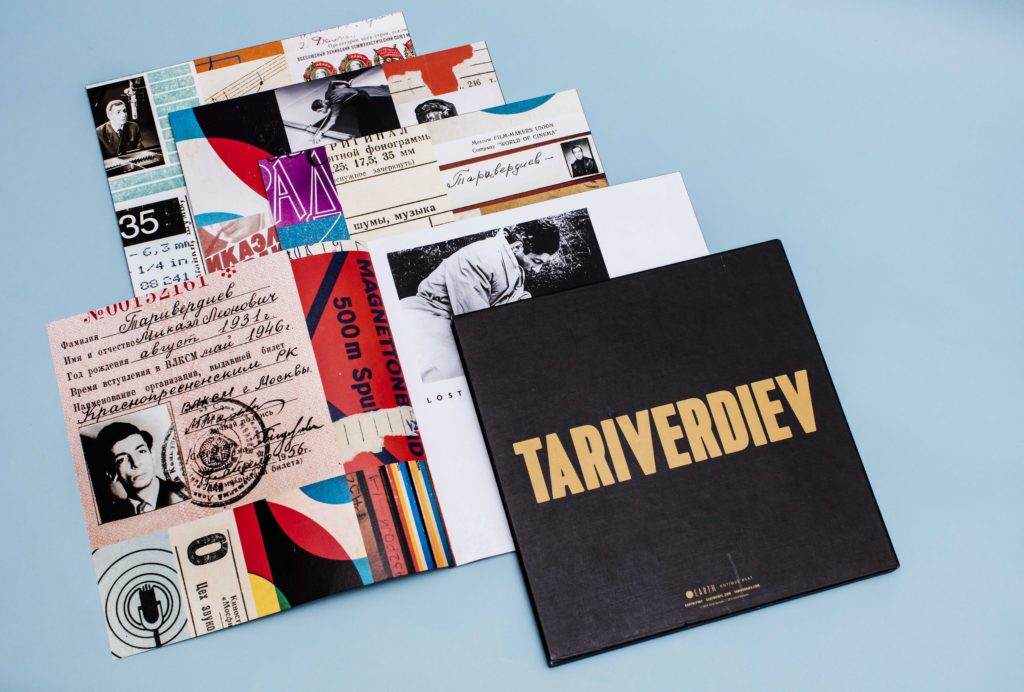


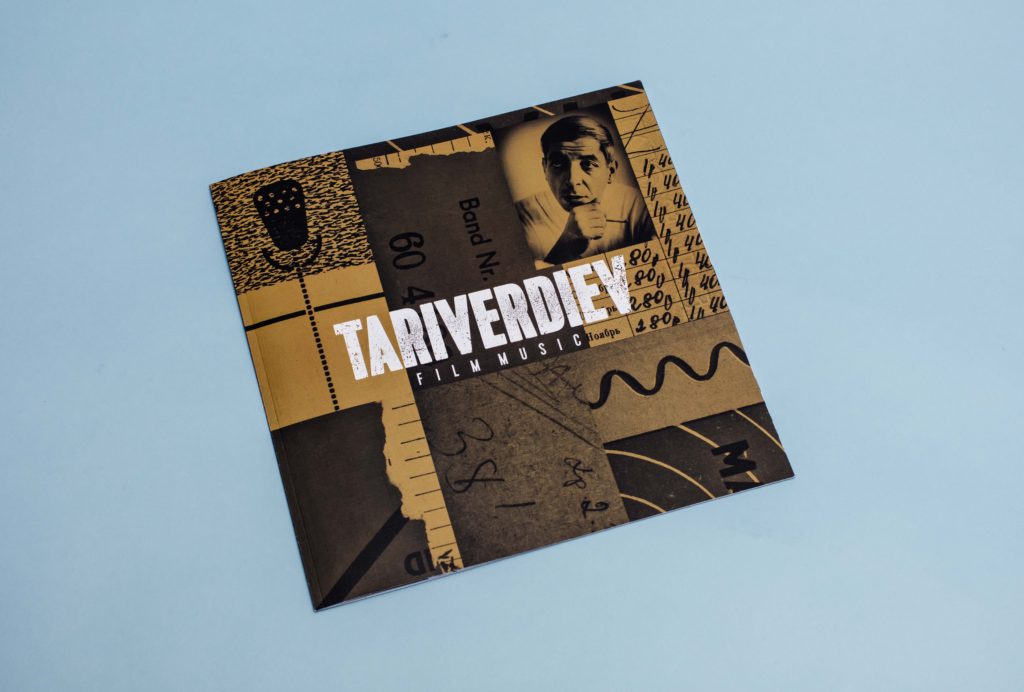
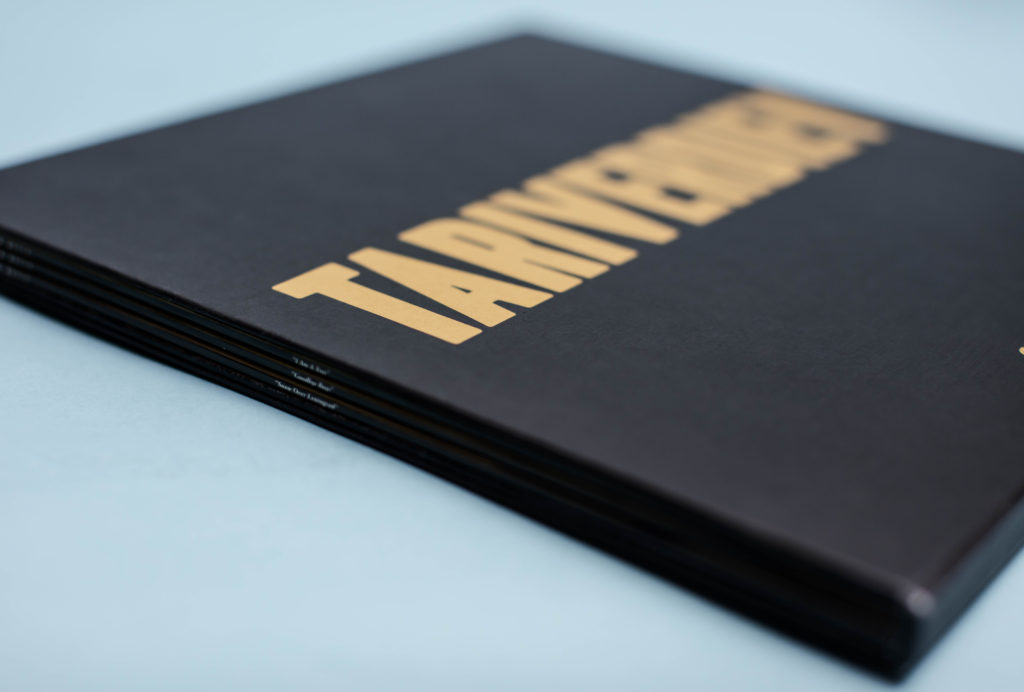

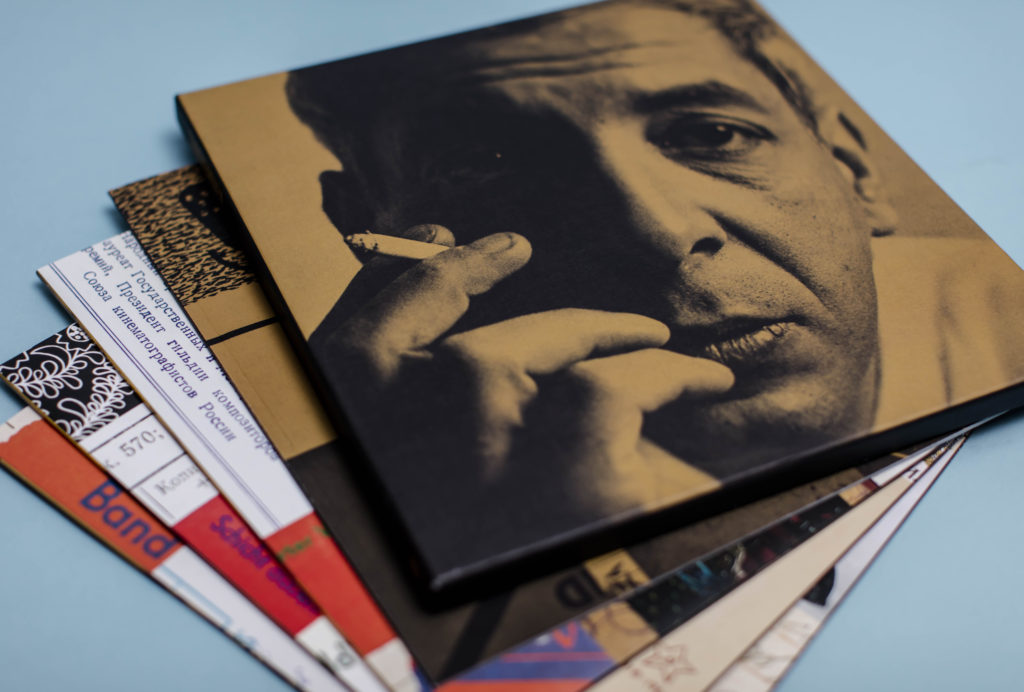
Film Music
Mikael Tariverdiev
Tariverdiev scored over 130 films during his lifetime, he also wrote classical music for more than a hundred romances, ballets, operas and chamber vocal cycles. He received many awards for his work including 18 international prizes; the American Music Academy’s award (1975), three Nika awards for the best film scores of the year, USSR State Prize (1977), the Lenin Konsomol prize (1977) and the title of People’s artist of Russia (1986). Aside from writing music he also went on to be Head of the Composers’ Guild Of Soviet Cinematographer’s Union.
‘Film Music’ unveils the extraordinary life of an unusual composer who was acutely aware of the political environment although it was not central to his work.
£20.00 – £60.00
Born in 1931 in Tbilisi, Georgian SSR to Armenian parents, Tariverdiev was a highly esteemed artist remembered for his work in film and music in Russia. His repertoire includes scoring for successful cult TV films ‘Seventeen Moments Of Spring’ a 1973 twelve-part Soviet television series based on the novel of the same title by Yulian Semyonov and the romantic comedy ‘The Irony Of Fate’ (1976), one of the most famous and popular Soviet television productions ever made. Both programmes remain highly regarded with the latter regularly being aired on national television at Christmas.
Tariverdiev came to public attention by working with his lifelong friend, the director Mikhail Khalik on the coming-of-age film ‘Goodbye Boys’ (Dosvedanya Malchiki) in 1964. The pair went on to produce several other films together until the early 1970s when Khalik’s refusal to cooperate with the censor led to his defection.
Although cinema and music was the root of Mikael’s passion he also enjoyed creating alternative styles of dialogue with his audience. He began to work on vocal cycles (musical settings for poetry) and although this was not usual for a cinematic audience, he began to experiment. In the film ‘A Man Follows The Sun’, directed by Khalik, his setting of Semyon Kirsanov’s poem ‘You Have Such Eyes’ against impressionistic scenes marked the beginning of an aesthetic he developed through the 1960s and called ‘The Third Trend’. Choosing to go against the formality of the Soviet musical academic establishment, he sang some vocal cycles himself, pronouncing words emotionally and so connecting with the style of French Chanson and the Russian Bard tradition.
Tariverdiev scored over 130 films during his lifetime, he also wrote classical music for more than a hundred romances, ballets, operas and chamber vocal cycles. He received many awards for his work including 18 international prizes; the American Music Academy’s award (1975), three Nika awards for the best film scores of the year, USSR State Prize (1977), the Lenin Konsomol prize (1977) and the title of People’s artist of Russia (1986). Aside from writing music he also went on to be Head of the Composers’ Guild Of Soviet Cinematographer’s Union.
‘Film Music’ unveils the extraordinary life of an unusual composer who was acutely aware of the political environment although it was not central to his work. The 3LP boxset is beautifully packaged within hard outer slipcase and comes with a 24 page booklet bursting with unseen documents and materials from the Tariverdiev home. The rare photographs come from Mikael’s personal collection including stills from the film sets he was working on, his and Vera’s apartment and images of his studio.
Available as a 3LP or 3CD box.
Mikael Tariverdiev composer of soundtracks to the Soviet films ‘Goodbye Boys’, ‘Seventeen Moments of Spring’ and ‘The Irony of Fate’
“He was a unique composer. I do not rank anyone else with him there. I can only compare him to world-class composers such as Nino Rota or Michel Legrand” Director Mikhail Khalik
“His music is his autobiography” Wife, Vera Tariverdieva
Compiled by his wife Vera Tariverdieva and musician Stephen Coates ‘Film Music’ includes a selection of the composer’s greatest tracks, including many previously unreleased versions. All were made with new transfers from original tapes and his own reel-to-reel machine.
Tracklist
2. Movement In Tempo Presto
3. Morning In The Mountains
4. Sun In Rain
5. Memory (Instrumental)
6. Olga's Melody
7. Burned Out Nerves
8. Reflection
9. Movement In E Minor
10. The Solitude Of The Boat
11. Harpsichord Rhythm
12. Nocturne
13. Don't Disappear (Instrumental)
14. Moscow Morning
15. Childhood
16. Circles On Water
17. Wanderer
18. Aria
19. Longing For Silence
20. Memory (Vocal)
21. Appearance
22. Out Of Shot
23. Horizon
24. Mariner
25. Cloud Land
26. Vanishing Point
27. Don't Disappear (Vocal)
Description
Born in 1931 in Tbilisi, Georgian SSR to Armenian parents, Tariverdiev was a highly esteemed artist remembered for his work in film and music in Russia. His repertoire includes scoring for successful cult TV films ‘Seventeen Moments Of Spring’ a 1973 twelve-part Soviet television series based on the novel of the same title by Yulian Semyonov and the romantic comedy ‘The Irony Of Fate’ (1976), one of the most famous and popular Soviet television productions ever made. Both programmes remain highly regarded with the latter regularly being aired on national television at Christmas.
Tariverdiev came to public attention by working with his lifelong friend, the director Mikhail Khalik on the coming-of-age film ‘Goodbye Boys’ (Dosvedanya Malchiki) in 1964. The pair went on to produce several other films together until the early 1970s when Khalik’s refusal to cooperate with the censor led to his defection.
Although cinema and music was the root of Mikael’s passion he also enjoyed creating alternative styles of dialogue with his audience. He began to work on vocal cycles (musical settings for poetry) and although this was not usual for a cinematic audience, he began to experiment. In the film ‘A Man Follows The Sun’, directed by Khalik, his setting of Semyon Kirsanov’s poem ‘You Have Such Eyes’ against impressionistic scenes marked the beginning of an aesthetic he developed through the 1960s and called ‘The Third Trend’. Choosing to go against the formality of the Soviet musical academic establishment, he sang some vocal cycles himself, pronouncing words emotionally and so connecting with the style of French Chanson and the Russian Bard tradition.
Tariverdiev scored over 130 films during his lifetime, he also wrote classical music for more than a hundred romances, ballets, operas and chamber vocal cycles. He received many awards for his work including 18 international prizes; the American Music Academy’s award (1975), three Nika awards for the best film scores of the year, USSR State Prize (1977), the Lenin Konsomol prize (1977) and the title of People’s artist of Russia (1986). Aside from writing music he also went on to be Head of the Composers’ Guild Of Soviet Cinematographer’s Union.
‘Film Music’ unveils the extraordinary life of an unusual composer who was acutely aware of the political environment although it was not central to his work. The 3LP boxset is beautifully packaged within hard outer slipcase and comes with a 24 page booklet bursting with unseen documents and materials from the Tariverdiev home. The rare photographs come from Mikael’s personal collection including stills from the film sets he was working on, his and Vera’s apartment and images of his studio.
Available as a 3LP or 3CD box.
Mikael Tariverdiev composer of soundtracks to the Soviet films ‘Goodbye Boys’, ‘Seventeen Moments of Spring’ and ‘The Irony of Fate’
“He was a unique composer. I do not rank anyone else with him there. I can only compare him to world-class composers such as Nino Rota or Michel Legrand” Director Mikhail Khalik
“His music is his autobiography” Wife, Vera Tariverdieva
Compiled by his wife Vera Tariverdieva and musician Stephen Coates ‘Film Music’ includes a selection of the composer’s greatest tracks, including many previously unreleased versions. All were made with new transfers from original tapes and his own reel-to-reel machine.
